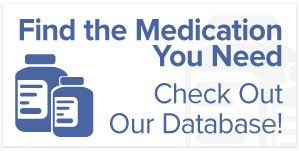Stress has become an inevitable part of human lives in today’s fast-paced and demanding environment. Stress can negatively impact the general well-being due to social expectations, professional obligations, and personal difficulties. Stress has a negative effect on a healthy body that goes beyond simple emotional misery and significantly impacts our physical and mental health.
The Meaning of Stress
The body’s natural reaction to any demand or threat is known as stress, and it involves a complicated chain of physiological and psychological responses. While mild forms of stress can spur us on to give our best efforts, prolonged or excessive stress can negatively affect both the mind and body.
In this article, we will investigate the complex relationship between the effects of stress and its consequences on both mental and physical well-being. One can better comprehend stress’s substantial effect on general well-being by analyzing the fundamental mechanisms and the most recent research results.
The Effects of Stress on the Body
First and foremost, it’s crucial to comprehend the bodily effects of stress. The hypothalamic-pituitary-adrenal (HPA) axis, the body’s natural stress response mechanism, can become activated as a result of prolonged exposure to stress. Stress hormones like cortisol and adrenaline are released through this system, preparing the body for the “fight-or-flight” response.
Chronic Stress’ Effects on Physiological Systems
Chronic stress, on the other hand, can negatively impact a number of physiological systems, including the immunological, digestive, and cardiovascular systems. As a result, people may have higher blood pressure, reduced immune systems, digestive issues, and a higher chance of contracting chronic diseases.
The Impact of Stress on Mental Health
In addition, the delicate neurotransmitter balance in the brain can be upset by high levels of stress, which can result in mood disorders including anxiety and depression. Chronic stress can harm cognitive function, affecting one’s capacity for memory, concentration, and decision-making. Additionally, stress can worsen mental health issues already present, and people who are predisposed to mental diseases may experience worsened symptoms and decreased resilience.

Techniques for Managing Stress and Developing Resilience
For successful measures to reduce stress’s detrimental impacts, it is essential to comprehend the connection between stress and mental and physical health. People can improve their general well-being and develop resilience by using stress management strategies like exercise, mindfulness training, relaxation techniques, and social support. Furthermore, in order to prioritize stress prevention and management in public health programs, healthcare practitioners and policymakers must acknowledge the negative effects of stress.
The Necessity for Recognizing and Managing Stress
In conclusion, stress is a complex phenomenon that adversely impacts both our physical and mental health. Chronic or extreme stress can have negative effects, from its physiological effects on numerous bodily systems to its impact on mental health. Fostering a healthy lifestyle requires understanding the effects of stress and the significance of coping with it while putting solutions in place to lessen its detrimental effects. In light of today’s demanding society, we can work to lead more balanced, satisfying lives by addressing the complex relationship between stress and our general well-being.
Are you looking to get a prescription plan for SSRIs or SNRIs to enhance your quality of life by eliminating the effects of stress on your mental and physical health? Let Rx Helper be your friend in this journey. Book your appointment today!



